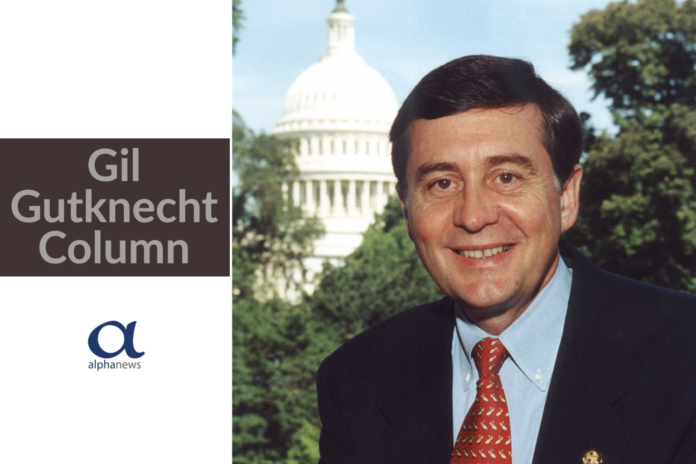President Trump has again proven that he is a man of action. He says what he means and means what he says. He is all about results.
For over a generation, Americans have been held hostage by the drug companies. We are the largest market, yet we have been forced to pay the highest prices in the industrialized world. Not just a little more. A lot more. Elites in Washington with gold-plated insurance don’t see this. Millions of average American families do.
Look at insulin for example. Recently, a vial of insulin carried a retail price of $300 here in the states. In Canada, that same vial sold for only $32. Insulin was purified so that it could be administered to humans about a century ago by two Canadian researchers, Fredrick Banting and Charles Herbert Best. It was a lifesaver for millions of diabetics around the world. The researchers sold their rights for $1 to the University of Toronto, where they were working. To rapidly ramp up production, the University signed a licensing agreement with a gentleman named Eli Lilly.
For decades the Lilly company and diabetics had a friendly, symbiotic relationship. Lilly produced a high-quality product and sold it at a fair price to people who desperately needed it. The company made a fair profit and began developing other therapies. Somewhere things went off the rails.
In the ’80s, the drug industry began claiming it wanted to protect us from potentially dangerous drugs. Their lobbyists warned of the dangers of what they called diversion. They touted the possible dangers of counterfeit and potentially adulterated drugs entering our supply chain.
These “possibly” counterfeit drugs “could” be coming in from other countries. Congress needed to do something. Ever noticed how often special interests fan the flames of some danger (real or imagined) to help pass something that will benefit them? The hard evidence of the danger of diversion and importation was at best, sparse.
So Congress, eager to protect the health and safety of their constituents, took action to protect us from these supposed dangers. Members of Congress may not have understood exactly what they were doing, Pharma execs and their lobbyists certainly did.
Congress gave the pharmaceutical companies trade protections that no other industry enjoys. In 1987, Congress passed The Prescription Drug Marketing Act. Principally, the act prohibited the re-importation of Rx drugs from other countries where the companies sold them much cheaper.
At the Oval Office signing ceremony, President Reagan admitted to having “mixed feelings.” Saying that the magnitude of the dangers posed from diversion was far from clear. He warned of potential unintended consequences. The president feared that the legislation could reduce competition. He understood that the act granted enormous unchecked market power to the drug industry and it could be used to hold Americans hostage. Prophetically he said, “To be specific, I am very concerned that this legislation could impose on the sick and the elderly increased prices for prescription drugs.”
Reagan was concerned enough that he instructed his attorney general to monitor the implementation of the bill and to make recommendations if they found abuses. The industry was smart enough to wait until the watchdogs had gone to sleep before they began to fully exploit their new market power.
– – –
Gil Gutknecht served six terms in the U.S. House from Minnesota. He authored Rx drug legislation which passed the House that would have accomplished what President Trump recently did by executive order. This article first appeared in Townhall and was republished here with permission.

















